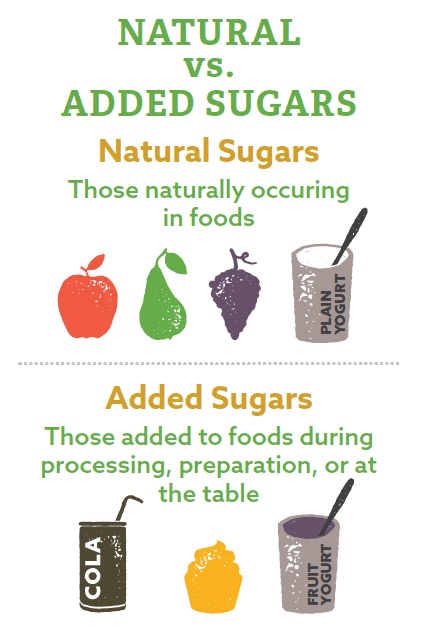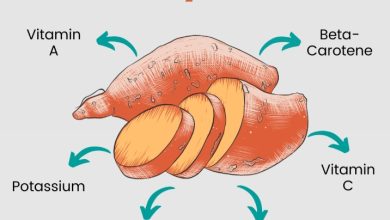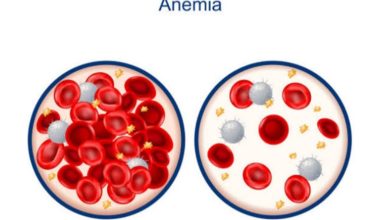
Sugar, a sweet and tempting ingredient, has become a staple in our daily lives. From our morning coffee to desserts after dinner, we often consume more sugar than we realize. While it may make our taste buds happy, excess sugar intake can have a significant impact on our overall health. It’s necessary to know the effects of sugar on our bodies, as well as strategies for reducing our consumption to improve our overall health.
Natural vs. Added Sugars: What’s the Difference?
First and foremost, it is important to understand the difference between Natural and Added sugars.
Natural sugars, such as those found in fruits, vegetables, and dairy products, are an essential part of a healthy diet. These sugars come packaged with other essential nutrients and fiber, which slow down the absorption of sugar into our bloodstream.
Added sugars, which are often found in processed and packaged foods, provide empty calories and offer no nutritional value. The overconsumption of added sugars has been linked to a variety of health problems, including obesity, heart disease, type 2 diabetes, liver disease, and dental cavities.
Here are some ways sugar affects our health:
- Weight gain: High sugar intake can lead to weight gain and obesity. Sugar is quickly absorbed into the bloodstream and can spike blood sugar levels, leading to the release of insulin. Insulin promotes fat storage, and over time, this can contribute to weight gain.
- Increased risk of chronic diseases: Consuming too much sugar has been linked to an increased risk of developing chronic conditions such as heart disease, type 2 diabetes, and metabolic syndrome. The excessive consumption of sugary beverages, such as soda and fruit juices, has particularly strong associations with these conditions.
- Addiction-like properties: Sugar can trigger the release of dopamine, a hormone associated with pleasure and reward, in the brain. This can create a cycle of craving and consumption, similar to the way addictive substances like drugs and alcohol work. This can lead to a dependence on sugar and difficulty in moderating intake.
- Negative impact on dental health: Sugar feeds the bacteria in our mouth, leading to the production of acids that can erode tooth enamel and cause dental cavities. Regular consumption of sugary foods and drinks can increase the risk of tooth decay and gum disease.
Read Also
So how much sugar is too much?
According to the American Heart Association, the recommended daily limit for added sugars is 25g for women and 36g for men. However, on average, Americans consume about 77g of added sugar per day, well above the recommended limit. This is why it is crucial to be mindful of our sugar intake and take necessary steps to reduce it.

Ways to reduce sugar consumption in our daily nutrition
- One way to reduce our sugar consumption is to be more conscious of the food choices we make. Processed and packaged foods, such as candy, cookies, and soda, are high in added sugars. Instead, opt for whole and natural foods, like fruits, vegetables, and lean protein sources, which are lower in added sugars and provide essential nutrients for our bodies.
- Another strategy to reduce sugar intake is to read food labels carefully. Added sugars hide in many unexpected foods, such as pasta sauces, condiments, and even some yogurts. By checking the ingredient list, we can identify added sugars and make healthier choices.
- We can also replace sugary drinks with healthier options, such as water, unsweetened tea, or fruit-infused water. Drinking our calories is an easy way to overconsume sugar without realizing it. By swapping out sugary drinks with healthier alternatives, we can reduce our sugar intake significantly.
- It is essential to be mindful of our sugar cravings and find healthier ways to satisfy them. Instead of reaching for a candy bar or a sugary dessert, we can opt for a piece of fruit or a small serving of dark chocolate. These alternatives provide natural sugars and other beneficial nutrients, making them a better option than processed and sugary treats.
Sugar may be a delicious and tempting ingredient, but excess consumption of added sugars can have a significant impact on our health. By being mindful of our food choices, checking labels, and finding healthier ways to satisfy our sugar cravings, we can reduce our sugar intake and improve our overall health. Let’s make a conscious effort to limit added sugar and prioritize whole and natural foods to nourish our bodies from the inside out.



